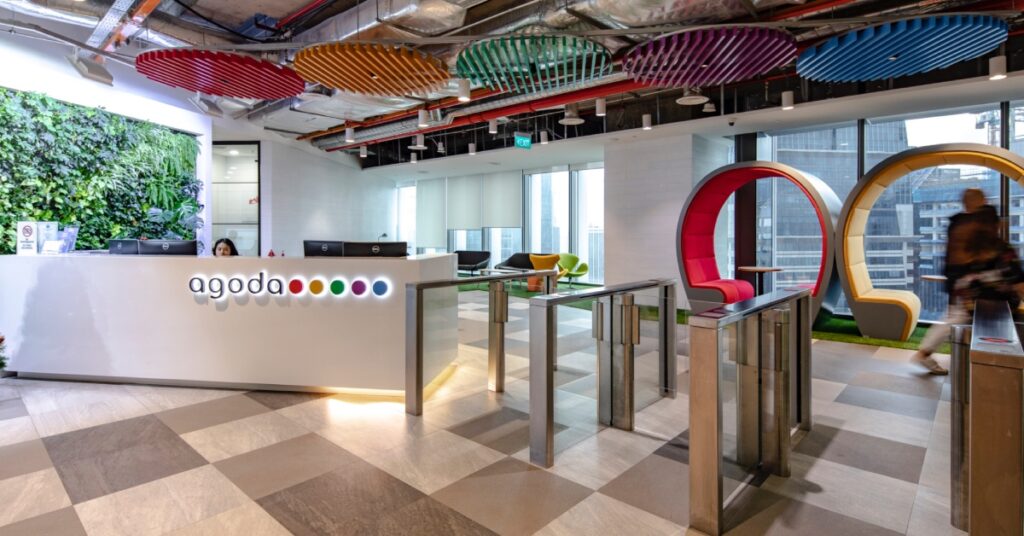Most travelers in Malaysia are familiar with hotel booking sites like Booking.com, Agoda and even TripAdvisor. Every once in a while, we scroll through sites like Fave for deals, or even just wait until the last-minute for when hotels drop their prices to sell-off rooms. This is not to mention the popularity of crowdsourced Airbnb accommodations that also offer stays at a low prices.
And in this industry comes Staydilly, a hotel-booking service that can give users discounts for up to 60%. This site will tell you most of everything you’d want to know for a pleasant hotel stay—all but the hotel’s name.
In what Staydilly is calling their ‘Mystery Hotel’ concept, the name of the hotel will only be revealed once users make the booking.
“The industry has been plagued with decreasing prices in recent years, and one of the key questions hoteliers ask is ‘How do we increase prices?’. Unfortunately, with low occupancy rates, prices can only go down and over the last few years price compression has occurred, with 5-star hotels selling at 3-star prices, 4-star hotels selling at 2-star prices and so on.”
“The hotels in the budget segment do not have the margins to reduce further to compete and many go out of business. Staydilly is attempting to reverse this to enable a more healthy and sustainable hospitality industry,” said founder Eu Jin, founder of Staydilly.
Staydilly’s Policy

The idea for Staydilly came about when the team (who come from different travel-related backgrounds such as hoteliers, airlines, travel agents) noticed that the hotels that they stayed in always have empty rooms. To fill these rooms, the hotels will offer large discounts at the last minute.
According to Eu Jin, “So someone who booked at the last minute might pay a lower price than someone who booked much earlier. This appeared counter-intuitive to us; someone who books early should be given a lower price than someone who books at the last minute.”
Even though hotels might be desperate to fill rooms, if they lower their prices too much too often, it’ll dilute their brand. Basically, imagine a 5-star hotel advertising 3-star prices. Users might start questioning: why buy it at full price then? It’s a bit of a catch-22. Do the hotels sell off the rooms to make more profit or do they refrain but retain the branding?
With the Mystery Hotel concept, Staydilly thinks it can solve this issue.



There are certain tendencies for deals sites to hike up their ‘before’ prices so that the ‘after’ prices seem much cheaper. When asked about this, Eu Jin stated that:
“Being a mystery hotel site, we are aware that the traveler’s behavior upon booking with Staydilly is to immediately check the hotel price once booking has been made. To this end, we constantly review our prices to ensure that we always have the lowest prices. Therefore, we do not need to hike up the prices as there is an easily accessible means of discovering what the actual (and higher) price of the hotels are on other hotel booking sites.”
How Staydilly Monetises
And bear with me people because the answer involves… math.
Here’s how Eu Jin described it.
“Say a hotel’s usual price is $100. If the hotel is experiencing low occupancy, they discount their prices at the last minute, let’s say to $60. A traveler makes a booking on a popular online hotel booking site and pays $60.”
“Unfortunately, the hotel does not receive $60, as the online hotel booking site takes a commission. The net commission can range between 25–35% (this is net inclusive of any hidden fees the hotel pays). Therefore, assuming the net commission is 30%, the hotel only receives $40.”
“Staydilly does not work on a commission basis but instead marks up from our fixed cost the partner hotels gives us. In this example, the hotel is indifferent to receiving $40 either from Staydilly or from the other online hotel booking sites, although they would rather receive it from Staydilly as the other hotel booking sites sell under the hotel’s brand, causing brand dilution for the hotel.”
“So applying say a 25% mark-up, Staydilly is able to sell this same room for $50. And because we sell the same room for as early as 1 year in advance when the hotel is still selling at $100, we can be 50% cheaper than what the traveler can find elsewhere. At $50 we are still cheaper than the $60 last-minute hotel discount. But remember, if we are able to sell these rooms earlier and increase the hotel’s occupancy, then the hotel would not even need to discount to $60.”
Phew, now that’s a lot of percentages.
So we can tell that hotels may find this model appealing to sell off their usually idle rooms, but we wondered: what do consumers get out of it? Staydilly doesn’t consider themselves a deals site, but that won’t mean much to users who will do price-comparisons on all offers from travel agencies to deals sites to this new system that Staydilly uses.
We posed that quandary to Eu Jin, and here’s what we found out.
1. Staydilly’s discounts are consistent.
No matter if you’re booking for one month in advance, to booking a next-day stay, as long as there are still available rooms on the site, Staydilly’s prices don’t fluctuate up or down no matter when the bookings are made.
2. It allows for more variety in choices (versus deals sites):
Eu Jin argues that deals sites are more opportunistic in nature, offering discounts for only specific times and very limited number of hotels. Since hotels on Staydilly are available all-year-round, users are better able to shop for hotels that better suit their criteria, especially in terms of hotel location and timing of vacation.
After all, more users prefer to book a hotel after planning a vacation, rather than booking a hotel then planning the trip around it. It’s friendlier towards people aren’t too fussed about hotel branding, but still prefer to plan their trips beforehand.
3. It’s cheaper compared to online travel agencies
Thanks to the number game mentioned earlier, Staydilly is able to offer cheaper prices compared to online travel agencies (arguably their most direct competitor) and they are again, able to offer these prices all-year-round instead of near the date, when hotels would be pushing their prices down to sell off rooms.
It’s a more reliable relatively cheaper option, versus playing the guessing game on whether last-minute hotel prices will go up or down.
4. There’s reassurance for hotel quality
Because Staydilly claims to be quite selective of their hotels by taking only 3-5 star hotels at ratings 7/10 and above, they’ve done a lot of the narrowing-down of hotels for consumers.
Here’s Eu Jin’s personal comparison. “Travelers today can choose to book their rooms from the hotel directly, like visiting a flagship store. Or they can go to a hotel booking site online, like going to a departmental store to shop. Or they can shop on Staydilly which is like going to a premium outlet.”
In terms of deal-friendly platforms, Staydilly’s concept has the advantage of being appealing to the hotel industry. When it comes to the mystery of the hotel name, the discounts and the photos plus detailed descriptions might just be enough to keep users interested enough to even give it a go.
Also Read: You’re Using A 4G Phone But Internet Is STILL Slow. We Can Explain.
Feature Image Credit: Staydilly














